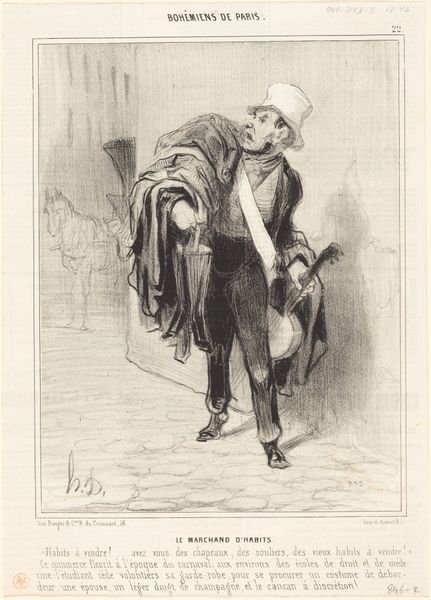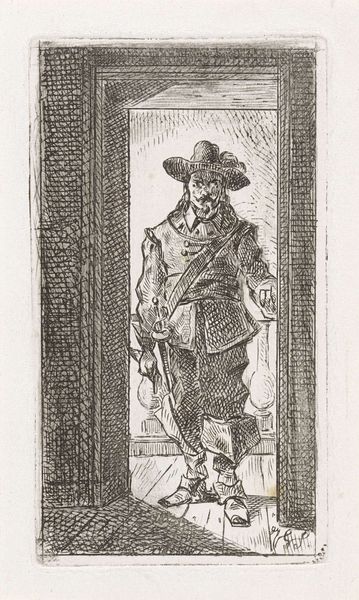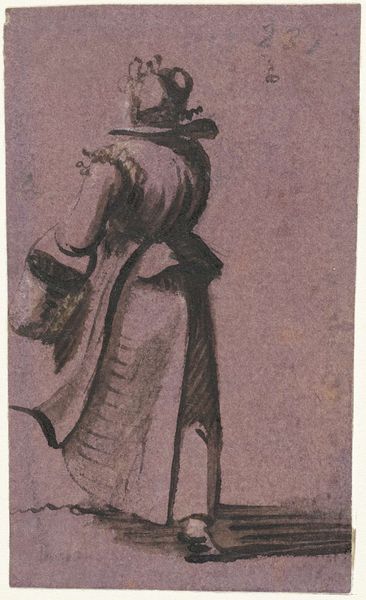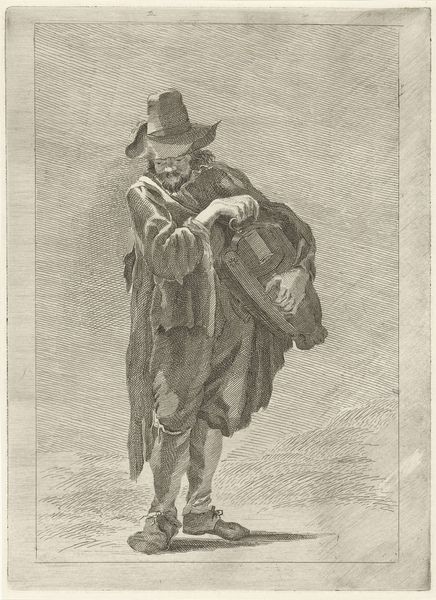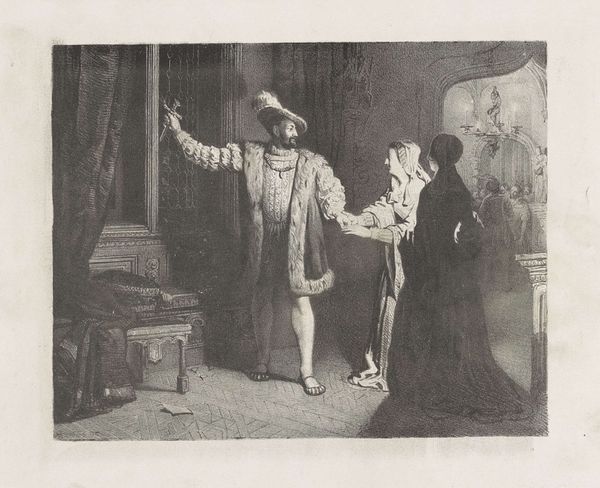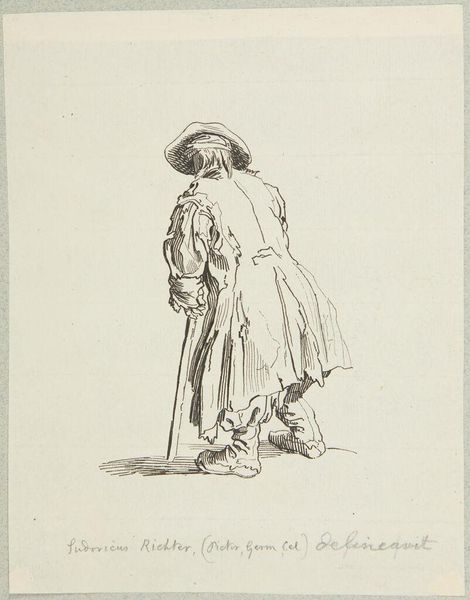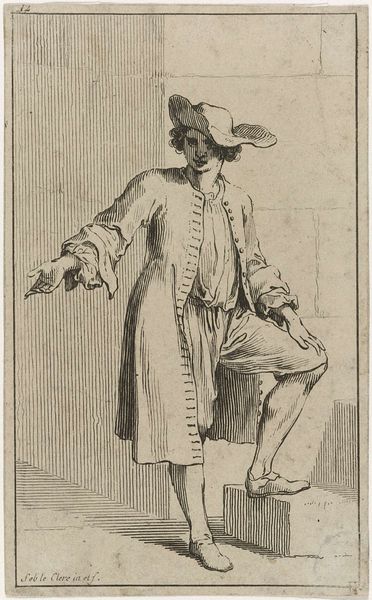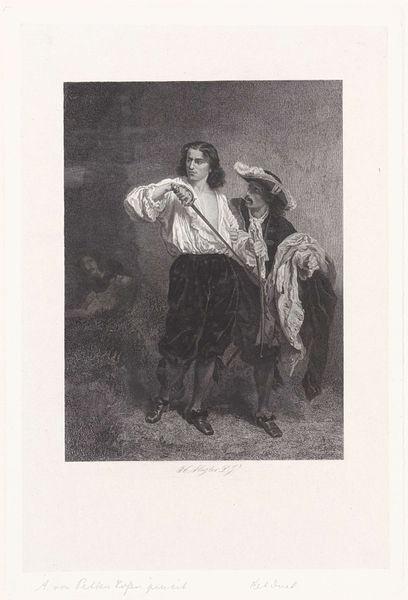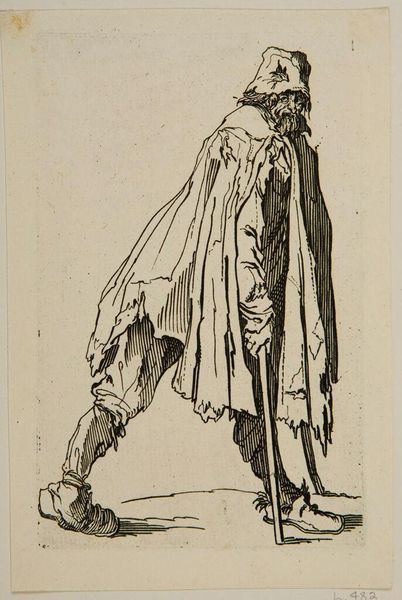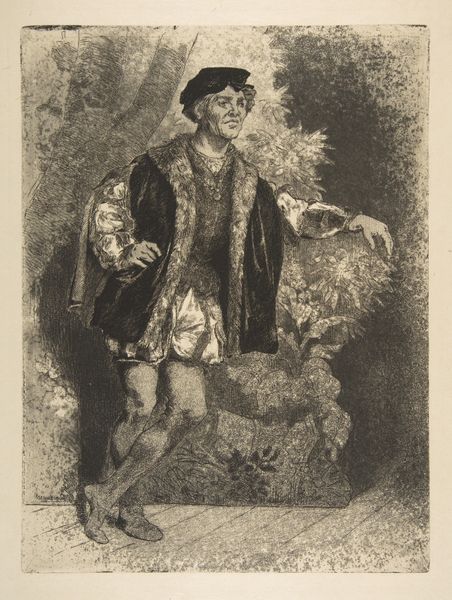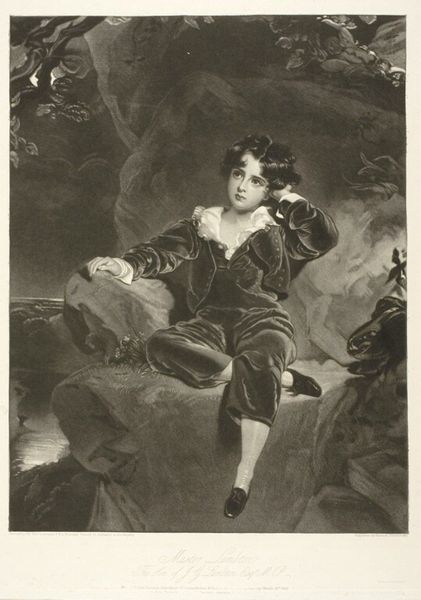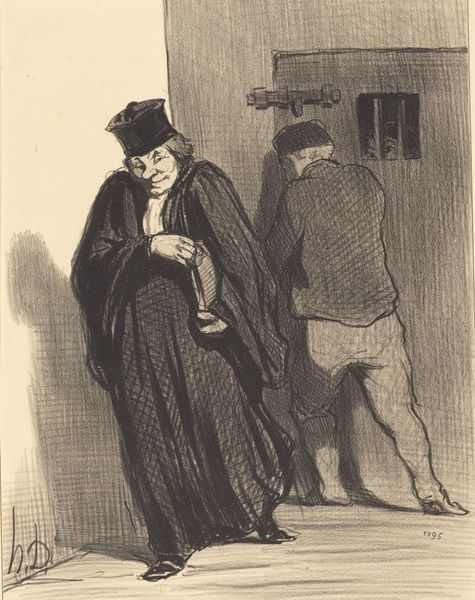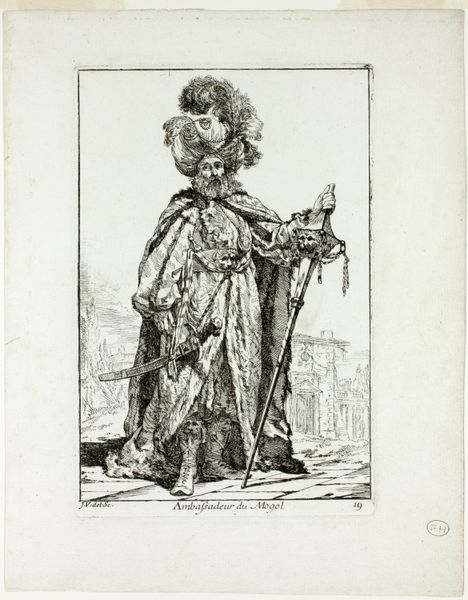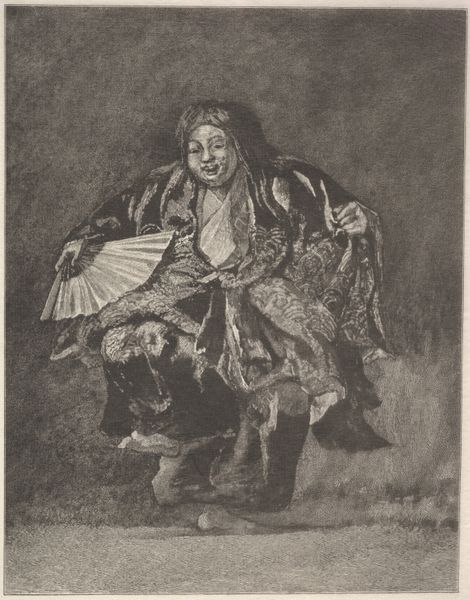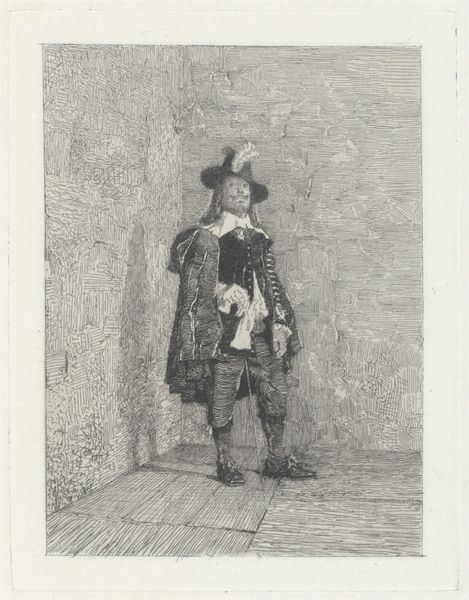
painting, oil-paint
#
portrait
#
narrative-art
#
painting
#
oil-paint
#
oil painting
#
genre-painting
#
academic-art
Copyright: Public Domain: Artvee
Jehan Georges Vibert's painting "Polonius Behind The Curtain" presents us with a moment of dramatic tension. The composition is immediately striking: Polonius, cloaked in vibrant red, lurks beside a tapestry, his figure cut off, heightening the sense of secrecy and anticipation. Vibert's use of color is crucial here. The boldness of Polonius's red cloak contrasts sharply with the muted tones of the tapestry, drawing our eye and underscoring his agitation. This juxtaposition isn't merely aesthetic; it's a calculated move to highlight the character's inner turmoil. The painting destabilizes the clear divisions between public and private, observer and observed. The curtain, a symbol of division, becomes porous, allowing for the intrusion of political machinations into personal spaces. This is Vibert's commentary on the theatricality of power, where appearances and reality are constantly at odds. The dynamic interplay between color, form, and the compositional structure embodies the complexities of human motives and the elusive nature of truth. The curtain, a central formal element, signifies not just concealment but the very fabric of deceit that permeates human relationships.
Comments
No comments
Be the first to comment and join the conversation on the ultimate creative platform.
